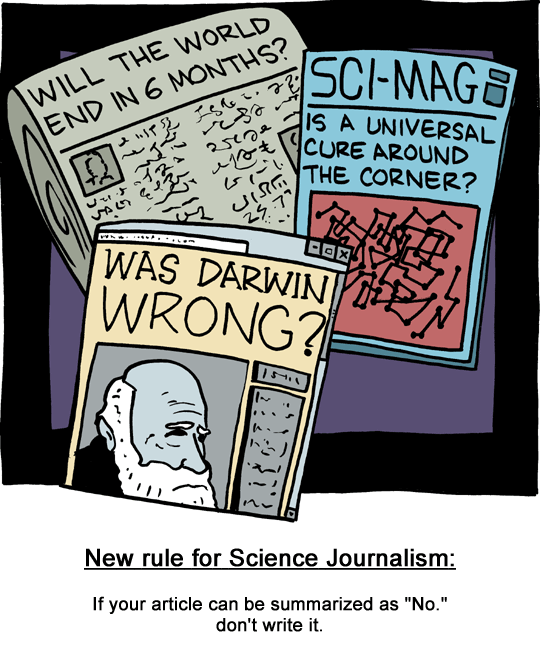The questions the parent had were familiar to anyone who has paid attention to the vaccine "controversy." Is there a link between vaccines and autism? Is the mercury in vaccines going to cause brain damage? Is the aluminum in vaccines going to cause problems? There are so many vaccines--won't the immune system get tired out? Isn't the flu vaccine ineffective? Was the whole response to H1N1 completely overblown?
The answer to all of these questions is no. The undying persistence of these questions is really frustrating, and shows the sort of asymmetrical warfare that goes on between reality and wishful thinking. All you have to do is mention some poorly-supported hypothesis once, and it is established. If it appeals to people's fears or prejudices, then it is solidly rooted. The problem, though, is that the truth is boring. It can take a long explanation with lots of evidence and patient demonstration to prove the obvious--and even then, there has been some research showing that people still assign greater trust to the thing that they heard first, even if they've been shown solid evidence to the contrary.
So I tried to be patient and tactful with the concerned parent. I pointed out the origin of each of the rumors, how they were generally based on very incomplete and biased information. How, if you directly tested the question, the problem just disappeared. How the immune system can generate a virtually infinite number of immunities. How, due to poor sampling and a knowledge of history, H1N1 was initially terrifying to epidemiologists. How there's a whooping cough epidemic going on in California, and how it is totally unnecessary. How, if you were concerned about risk, you'd avoid McDonalds and driving. But I don't know if the concerned parent will vaccinate. Too often, if reality doesn't conform to bias, bias wins.
This pattern goes on too often. Just about any popular "debate" about science follows this pattern--evolution, climate change, vaccination, you name it. Rumor blurts something out, and refuting it takes patient work with lots of footnotes.
The day after my conversation, this cartoon appeared on the web, from the often amusing SMBC:


No comments:
Post a Comment